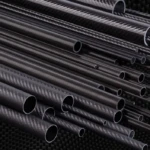CNC processing fee per hour: Cost guide
Computer numerical control (CNC) machining is a crucial process in the manufacturing world for creating high-precision parts and tools. With the development of technology, CNC machining has become more efficient and accurate, allowing companies to produce complex parts at excellent speed and quality. However, one of the most critical factors in CNC machining is the hourly processing fee, which can have a significant impact on the company’s budget and bottom line.
Understand the hourly processing fee
The hourly processing fee is the cost of using a CNC machine to manufacture parts. This fee includes labor, equipment and other overhead costs. Several factors affect hourly processing fees, including:
* Equipment Cost: Type and quality of CNC machines used in the manufacturing process.
*Hard cost: hourly rate for a mechanic or technician to operate the machine.
*Overhead: The cost of maintaining and operating a production facility, including utility, insurance and administrative expenses.
*Workload: Discounts may be available for large-volume orders or long-term contracts.
Types of CNC processing services
There are several types of CNC processing services, each service has its own processing fee per hour:
1.2.5 Axis machining: This type of machining involves the use of a single motion axis, resulting in a lower hourly processing fee.
2. 3-axis machining: This type of machining involves the use of three motion axes, making it more complex and accurate, but also more expensive.
3. 4-axis and 5-axis machining: These types of machining require multiple moving shafts, which are often used for complex parts, with higher processing fees per hour.
4. Customized processing: This type of processing requires professional expertise and equipment, and a higher processing fee is charged per hour.
Factors affecting hourly processing fees
Several factors can affect hourly processing fees, including:
1. Complicity of parts: Parts with complex geometry, complex details and strict tolerances require more time and expertise, resulting in higher processing fees per hour.
2. Material selection: Different materials have different properties, and some of the machines of the materials can be more challenging. This may affect hourly processing fees.
3. Industry Standards: Certain industries, such as aerospace or medical care, require stricter quality and accuracy, which charge higher processing fees per hour.
4. Location: The cost of living and doing business in different regions may affect hourly processing fees.
in conclusion
Hourly processing fees are a key factor in CNC machining, and understanding their components is crucial for companies looking to outsource their manufacturing needs. By taking into account the detailed factors mentioned above, companies can make informed decisions about their processing needs and budgets. It is very obvious that we offer a range of CNC machining services including 2.5-axis, 3-axis, 4-axis and 5-axis machining, as well as custom solutions for complex parts. Contact us today to learn more about our services and how we can help you with your precise manufacturing needs.
FAQ:
Q: What is the difference between 2.5-axis and 3-axis machining?
Answer: 2.5-axis machining involves the use of a single motion axis, while 3-axis machining involves the use of three motion axes. 3-axis machining is more complicated and requires a higher processing fee per hour.
Q: What is the cost of 5-axis processing?
A: Due to the complexity of the process and the professional equipment required, the cost of 5-axis processing is usually higher than that of 2.5-axis or 3-axis processing.
Q: How do you determine the hourly processing fee?
A: The hourly processing fee depends on the cost of equipment, labor costs, overhead costs and workload.
Q: What are the benefits of using CNC machining services?
A: CNC machining services provide high precision, accuracy and speed, making them ideal for producing complex parts with tight tolerances.
Q: Can I negotiate processing fees every hour?
A: Yes, some CNC machining services may be willing to negotiate processing fees every hour, especially for high-capacity orders or long-term contracts.

















